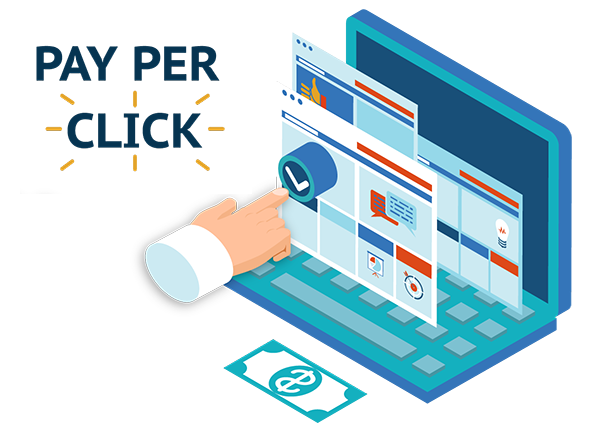Pay Per Click
Management
-
Introduction
In today's digital landscape, businesses face intense competition for online visibility and customer attention. To thrive in this highly competitive environment, companies need a strategic approach to online advertising. Pay Per Click (PPC) Management is a powerful tool that enables businesses to reach their target audience effectively, generate quality leads, and drive conversions. In this article, we will explore the fundamental principles of PPC Management and how it can elevate your online advertising success. -
What is Pay Per Click (PPC) Management?
PPC Management is a comprehensive digital marketing strategy aimed at creating, optimizing, and monitoring pay-per-click advertising campaigns. The essence of PPC lies in advertisers paying a fee each time a user clicks on their ads. These ads are typically displayed on search engines like Google, Bing, and social media platforms, offering businesses an opportunity to position themselves prominently in front of their target audience.

The Key Components of PPC Management
- Thorough Keyword Research: Keyword research forms the foundation of any successful PPC campaign. By identifying the most relevant and high-performing keywords, advertisers can target users actively searching for products or services similar to theirs. Effective keyword research requires a balance between high search volume and low competition to ensure cost-effectiveness.
- Compelling Ad Creation: Crafting persuasive and engaging ad copy is crucial to capture the attention of potential customers. Advertisers must clearly communicate their unique selling propositions (USPs) and include the targeted keywords to improve ad relevancy. Well-designed ads lead to higher click-through rates and ultimately better campaign performance.
- Smart Bid Management: Bidding is the process by which advertisers compete for ad placement in search engine results. Effective bid management involves setting appropriate bids for each keyword, considering factors like competitiveness, expected return on investment (ROI), and campaign goals. Regular monitoring and adjustments are necessary to maximize ad exposure and maintain profitability.
- Landing Page Optimization: Sending users to a relevant and well-optimized landing page is vital for a successful PPC campaign. Landing pages should align with the ad's message, have clear calls-to-action, and provide a seamless user experience. A well-designed landing page significantly impacts conversion rates and ensures that users find what they're looking for.
- Analysing Performance Metrics: Successful PPC Management involves continuous monitoring and analysis of key performance metrics. Click-through rates, conversion rates, cost per click, and return on ad spend are some essential metrics to track campaign effectiveness. Data-driven insights help marketers identify areas for improvement and fine-tune their strategies for optimal results.
The Benefits of PPC Management
- Display Network: Immediate Visibility: Unlike organic search efforts, PPC campaigns can deliver instant visibility for businesses. This immediate exposure helps to generate website traffic and brand awareness rapidly.
- Precise Targeting: PPC allows businesses to target specific keywords, demographics, geographic locations, and even interests. This level of precision ensures that ads are shown to the right audience, increasing the chances of attracting relevant leads.
- Cost Control: With PPC, advertisers have full control over their budget. The ability to set daily or monthly spending limits ensures that the advertising costs remain within the designated budget.
- Measurable Results: The data-rich environment of PPC enables advertisers to track performance accurately. This data-driven approach allows for continual optimization, leading to improved ROI over time.
Conclusion
- In a digital world where, online advertising can make or break a business, mastering Pay Per Click Management is paramount for success. By conducting thorough keyword research, crafting compelling ads, and optimizing landing pages, businesses can connect with their target audience effectively. Leveraging the benefits of PPC, such as immediate visibility, precise targeting, cost control, and measurable results, will drive optimal performance and empower businesses to achieve their advertising goals. Remember, effective PPC Management is an ongoing process that demands continual refinement and adaptation to stay ahead of the competition and capitalize on emerging opportunities.
